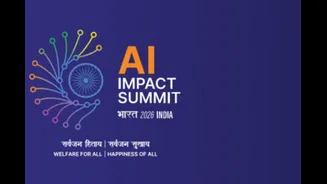Critical Thinking
Critical thinking is an essential skill that helps individuals analyze information objectively. It involves evaluating arguments, identifying biases, and
making informed decisions. In the context of AI, critical thinking becomes even more important. Since AI systems provide data-driven insights, the ability to assess these insights critically is crucial. This includes questioning assumptions, seeking diverse perspectives, and understanding the limitations of the data. For instance, when presented with AI-generated reports, critical thinkers will not blindly accept the conclusions but will examine the methodology, source of data, and potential biases before making any decisions. This ensures that the insights are valid and reliable, and decisions are grounded in sound reasoning. It also protects against the potential pitfalls of relying solely on AI without human oversight. Furthermore, critical thinkers can identify gaps in AI's capabilities, using this insight to develop unique and creative solutions that AI alone cannot provide.
Creativity & Innovation
Creativity and innovation are core human traits that AI struggles to emulate effectively. The ability to generate novel ideas, think outside the box, and develop original solutions is highly valued in any field. AI can assist with some aspects of the creative process, such as generating content or identifying patterns, but the spark of originality typically comes from humans. In a future where AI handles many routine tasks, creativity will become an even greater differentiator. Individuals who can generate innovative solutions and create new products or processes will be in high demand. For example, in a marketing role, a creative professional can devise unique campaigns that capture the audience’s attention in ways that AI simply cannot predict. Furthermore, the capacity to view problems from unconventional angles and develop novel concepts will be a key skill for adapting to the dynamic conditions of the future. The ability to embrace change and use imaginative solutions sets humans apart from automated systems.
Emotional Intelligence
Emotional intelligence, or EQ, which includes self-awareness, empathy, and social skills, is critical. EQ involves understanding and managing emotions in oneself and others. AI, at least currently, lacks the nuanced capacity to understand human emotions and build rapport in the same way. In fields such as leadership, customer service, and team collaboration, high EQ is essential for building strong relationships and navigating complex social dynamics. For example, in customer service, an emotionally intelligent agent can understand a customer's frustration, show empathy, and find a resolution that satisfies the customer. This level of personalized care enhances the experience and builds loyalty. Furthermore, as the workplace becomes more diverse and global, the ability to read nonverbal cues, understand cultural differences, and communicate effectively becomes crucial. Those with strong EQ can facilitate better collaboration, decrease conflict, and create environments where people feel heard and understood, making them invaluable in a world increasingly reliant on teamwork and communication.
Adaptability & Flexibility
The capacity to adapt to change and stay flexible is more important than ever. AI is constantly evolving, and the job market is also undergoing rapid transformations. As automation alters job roles and creates new ones, individuals who can quickly acquire new skills, adjust their approach, and embrace uncertainty will thrive. This includes being open to lifelong learning, proactively seeking out training opportunities, and being willing to step outside of one's comfort zone. For example, a professional in a traditionally stable field might need to learn new digital skills as their role evolves. Someone adaptable would enroll in online courses, attend workshops, and experiment with new technologies, thereby enhancing their versatility. Furthermore, adaptability means viewing setbacks as learning opportunities, not failures, and adopting a growth mindset. Being able to pivot and reshape one's career trajectory based on industry shifts helps to avoid becoming obsolete. This flexibility ensures resilience in a quickly changing landscape.
Communication Skills
The capacity to communicate clearly and persuasively, both verbally and in writing, remains a fundamental skill that AI cannot fully replace. While AI can generate text and translate languages, it often lacks the ability to convey nuanced meaning, tailor messages to specific audiences, and build genuine rapport. Strong communication skills involve active listening, the ability to articulate complex ideas simply, and the ability to persuade and influence others. In any profession, from sales and marketing to leadership and education, the ability to communicate effectively is essential for success. For example, a business leader with excellent communication skills can articulate their vision, motivate their team, and create a strong company culture. Furthermore, in an increasingly digital world, the ability to communicate across different platforms and with diverse audiences is vital. Professionals who can tailor their message to different communication styles, understand nonverbal cues, and navigate difficult conversations are valuable. This skill will remain important even as AI assists with communication.
Lifelong Learning
Lifelong learning is not just about keeping up with new skills but also about cultivating a mindset of continuous improvement. In the age of AI, the ability to learn new things quickly and adapt to changing circumstances is vital. This involves a proactive approach to learning, including seeking out new information, experimenting with new tools and techniques, and regularly reflecting on one's own skill set. For example, a software developer might need to learn new programming languages or frameworks as technology evolves. A lifelong learner will proactively explore these new technologies, take online courses, and experiment with different coding projects to enhance their knowledge. Furthermore, lifelong learning means being curious and open to new ideas. It involves a willingness to embrace challenges, learn from mistakes, and view every experience as a chance to grow. This active pursuit of knowledge keeps individuals relevant and adaptable, which is essential to thrive in the changing landscape.















